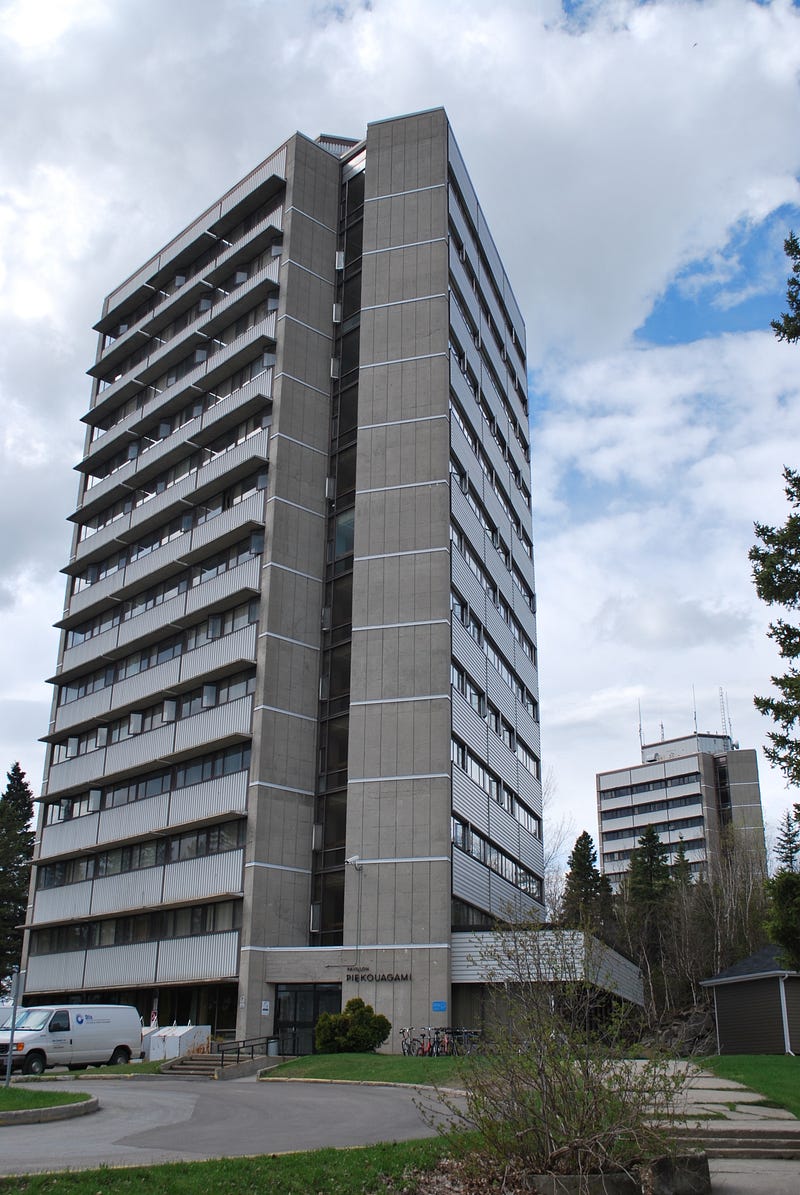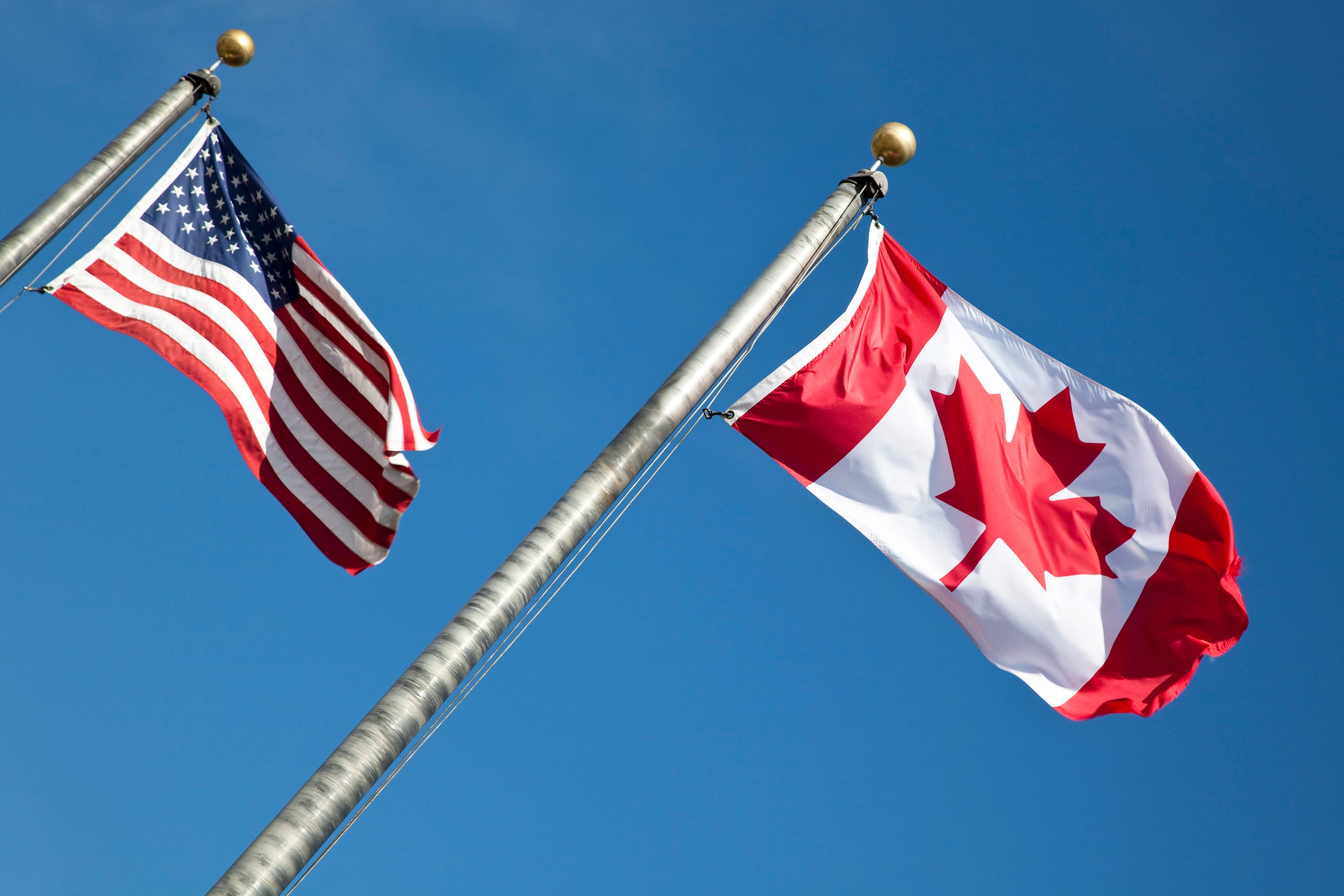
The cliché is accurate, that one about all-those-years-ago-slash-feels-like-just-yesterday. I think that’s always the case with momentous time periods that reshape who you are.
For this one, I was eighteen, headed up to northern Quebec, enrolled in a six-week French immersion program sponsored by the provincial government. In an era when Franco-Quebec nationalism seemed to be slowing down, it was a moderating bid: get more people all across Canada familiar with la francophonie. Brings my native country’s historical Two Solitudes together.
OK, that was the official spiel.
Unofficially, my part of Canada’s long been known as a place that loves a good party. Unlike their Anglo-Scottish Protestant neighbors, the French part of Canada had its own variety of joie de vivre. Once a conservative, Catholic place, it shrugged off religion in the sixties, and never looked back. The drinking age was (and still is) a very loosely enforced eighteen; it wasn’t uncommon to see high schoolers out at college pubs in my hometown, Montreal. Every Quebec town of any size boasts bars and strip joints alongside spots to eat poutine (pro tip: greasy indulgence is handy after a night of carousing).
Given that, it was an open secret among young Canadians that Jonquière, the town whose local college hosted this summer language immersion program, had more bars and clubs than some big cities. With the higher, and more rigidly enforced, drinking age in the rest of Canada, this subsidized summer adventure became for many a sort of extended summer camp, a last hurrah before the tribulations of college came calling.
It must’ve seemed baffling to many why I would’ve signed up. Languages were never my thing, and, truth be told, neither was any form of carousing. To say nothing of the fact that I was utterly petrified to get on that bus.
Let’s unpack all that, shall we?
It seems hard for me now, looking back through all the years, to put myself back in the body of the eighteen-year-old I once was. The events may feel vivid, but the headspace feels like another world. I think that’s true in the broader sense, looked at through the prism of today, when being a young, gay nerd is typically a thing to be celebrated. But it sure as heck didn’t feel that way in the summer of 1988. It was a different world, and I was a different me. Socially, I had a microscopic circle of friends, each about as nerdy as I was (though in different ways). Sometimes it felt like we barely tolerated each other, wishing we were in some other universe where we’d all be more welcomed. The letters my friends and family wrote me that summer (how they’ve made it through all these decades and relocations, I don’t know) reveal my peers to be as lost as I was. In an era before the widespread Internet, we’d grown up in a clannish, close-knit, homogeneous community. One that always seemed so different from who I was, or would ever be.
That explains the fear. It was a defense mechanism. After all, if we were misfits in our little community, imagine how little hope we had of making it in the bigger world. I think that’s the message that plays on repeat inside the brain of every bullied nerd or incipient closet case. Closed off, cautious, unwilling to boldly go. What was the point? We were all too weird to be accepted in this universe.
Still, as high school drew to a close, I had a countervailing panic: what if we were being too cautious? Maybe answers did in fact lie outside, beyond the familiar. Ned Stark’s son in Game of Thrones, asks how you can be brave when you’re afraid. I love the answer: it is only, replies Stark père, when one is afraid that one is truly brave.
And so, there I was, on a six-hour bus ride north, fretting. What was I doing here? I tried to console myself with the official stuff: knowing more languages helps in life, people said—so if nothing else, it’s a summer to build a potentially marketable skill while maybe, just maybe, I don’t know…try to be more social?
The ride up confirmed it was going to be an uphill mission: in addition to a motley crew of mostly college-bound kids from all over Canada, the Jonquière program had gotten on the radar of folks from my little community for many of the same party-time considerations. I don’t think there were many, if any, kids from my actual high school on that bus…but I inhabited such an incestuous scene that people knew people, and no doubt word had gotten out about me, and the words were stay away. Or, maybe I was just obsessing. Whatever it was, nobody spoke or paid attention to me over those six hours. Maybe I was even a bit relieved: I’d long since learned that if you don’t engage, you can’t get in trouble.

I was even more relieved to learn that the dorms we were staying in — a pair of mid-rise buildings overlooking a forest and an aluminum smelter (how Canadian is that?) — were single-occupancy. No roommate I’d have to fight with all summer. There was even a sink in the room, though toilets and showers were communal. I unpacked, settled in, and felt my anxiety rise.
As it began to get dark, I felt nature calling. I’d heard through my door the sounds of other kids in the hall: arriving, unpacking, chatting and laughing. That, too, was part and parcel: I was accustomed to an existence where all kids seemed to know each other, and got on in a convivial way, while I, well, didn’t. Still, I figured, no harm in popping out to the loo. Right?
I walked out my door, aiming myself at the bathrooms around the corner. A group of kids stood nearby—those voices through my door—and I did my usual, giving them a wide berth. Then I heard it behind me.
“Hey, what’s your name?”
Ugh. Busted. Well, no worry. Don’t engage, remember? No need to start this trip off on a bad note. So I ignored them, and kept on walking.
“Hey, no, come back! We’re just doing introductions.”
I remember pausing, confused. Like, what now? I had no playbook for this. All those platitudes about bravery seem to go out the window when you’re actually in the thick of it. Might as well rip off the Band-Aid now. So I turned around, walked over to them (probably mumbling an “I’m sorry” to boot).
And then, the craziest thing happened.
They actually wanted to know me, and what I was all about. Like, for real. Not as a joke, a prank, some way to cut me down later.
They’d also only just met. Not a one of them were from my hometown, much less my little community within it. As anticipated, they were from all over my vast but very spread out homeland: one guy, a buff redhead, from one of the scores of midsize towns surrounding Toronto; another kid from the Toronto burbs, headed to college to study aerospace engineering; a chatty, studious blonde gal from Windsor, Ontario, who shared my love of politics and America (I had some weird ideas about both back then); three kids from around Edmonton, Alberta, two of whom were a longtime couple—they told me how, for their high school Prom, they were gifted handcuffs; and one ski gal from Cranbrook, British Columbia.
We walked out into the unseasonably warm dusk — 1988 was the first year climate change got headlines — to experience what the town had to offer. We glided our way effortlessly into one of the many bars on the main drag. We ordered drinks, chatted, compared notes on our lives, and our life directions.

No big deal, right?
Actually, it was a big deal.
Huge.
It was nothing short of a miracle, really. A revelation. I was on a high that no substance could equal. They all seemed like popular, fun (dare I say, rather good-looking) kids, the sort my friend circle could only dream of hanging out with back home. All of them smart, funny, interesting, and ready to have a good time.
And they wanted to hang out with me. Me.
I know how all this reads. It all seems so trifling in hindsight. But those fears and insecurities we chuckle over when watching John Hughes or American Pie movies are the most significant events in creation at that age. That goes double for us real-life Freaks and Geeks, and triple in a less forgiving and understanding age.

I spent the whole rest of the summer with that gang; they even gifted me with a cute nickname that, for once, didn’t feel derogatory. The kids from my hometown community, meanwhile, save one or two, continued the silent treatment for the duration. Though, to be fair, it wasn’t all rosy with the gang I’d fallen in with: there were predictable romantic dramas; one or two of the guys proved not quite so nice as I got to know them better; my infantile political attitudes of the period no doubt grated on them (how could they not; I cringe at some of my opinions from back then).
And, yes, even with these newfound mates and adventures, I knew something was still missing. “One day,” said one of the Alberta gals to me during a heart-to-heart, “you’ll meet somebody who’ll knock you off your feet.”
How right she was—but not in the way any of us thought. Even though I clearly recall plenty of mysterious fascinations with guys both in and out of my circle — things I’d later identify as crushes — back then, in the Reagan-era 1980s, it was unthinkable that a guy like me could ever, in a million years, be like that. To my knowledge, not a single kid that summer was openly LGBTQ+, which was no different from the high school I’d attended. Love and romance were things for other people, with me in the dark as to why I was so clueless.
Still, in spite of the boring immersion classes, and the you-must-speak-French-all-the-time rules obeyed more in the breach than the observance, it was a summer for the ages—the first one I can remember. We went to rock concerts—also a bigger deal than it sounds, since I’d been too uptight to go to any before; songs from the local band we saw back then still get me misty (heck, don’t even get me started on Rick Astley). We went on day trips to old Quebec City, and on boat trips through the fjords of the Saguenay River; I still recall some of the more opinionated kids from Out West whining about how geographically uninteresting Eastern Canada was. In retrospect, having lived on the West Coast for more than half my adulthood now, I can say they kinda had a point. We went out dancing. We drank too much — me for the first time—which, yes, culminated in that all-important rite of passage one friend dubbed praying to the porcelain god.
But above all else, that summer was about feeling included, a feat my gang of misfits back home seemed to struggle to achieve. Alienation is a feeling that unites many of us nerdy and queer kids, then and even, to a degree, now.

I remember we all wept as we got on the bus home. I stayed in touch with some of them for a spell, even visiting the Albertans that winter for a ski trip to the Canadian Rockies. Ultimately, we drifted apart, as young people and young friend groups so often do. And no, I never came out, or found love, or really learned who I was that summer. That would only come years later.
But those people, that place, that season, lit the spark of who I would one day become.
